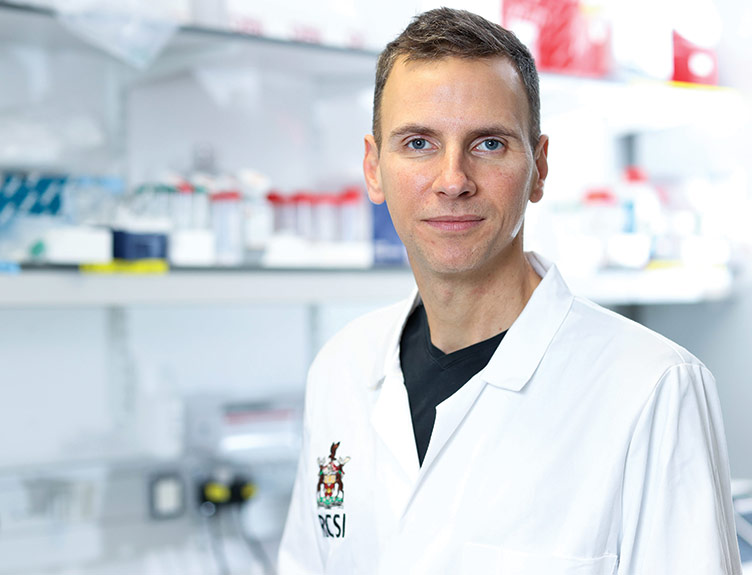RCSI and Tyndall National Institute embark on a unique collaboration

Today, Micheál Martin, Minister for Foreign Affairs, announced the joint collaboration between RCSI and Tyndall National Institute, UCC. RCSI and Tyndall will combine their respective strengths and synergies in ICT design hardware and clinical trial and market validation.
This collaboration will propel Ireland to the forefront of innovation in the biomedical device sector.
Speaking at the signing of the agreement, Minister Martin said: “The RCSI Colles Institute-Tyndall collaboration will provide the structure to develop technology solutions for the global biomedical device and surgical markets. Translating research, development and innovation into commercialised products will fuel Ireland’s economic growth. Tyndall and RCSI Colles Institute clearly understand that Ireland needs to make its own opportunities, create its own jobs and companies, if we are to sustain economic recovery.”
The Information and Communication Technology and medical device industries are continuing to experience growth in Ireland. Approximately 83,000 people are employed in the ICT industry and it accounts for €50 billion in Irish exports. In the medical device industry, 25,000 people are employed by the 140 medical device companies in Ireland, generating exports of €6.2 billion annually and the world market for medical devices is growing at 10-12%.
“This unique collaboration between RCSI and Tyndall, the first of its kind in Ireland, will enable the application of fabrication techniques and products traditionally used in ICT hardware to be used in the healthcare applications, to ultimately improve patient care and outcomes and enable faster recovery time for patients due to less invasive surgery, as well as reducing healthcare costs,” said Professor Cathal Kelly, CEO/Registrar, RCSI. “In RCSI, the patient is at the centre of everything we do and this partnership places Ireland at the forefront of key technology solutions for the biomedical and surgical markets,” Professor Kelly continued.
Professor Roger Whatmore, CEO, Tyndall National Institute, said: “Tyndall and RCSI are bringing together multi-disciplinary teams of clinicians and medics, biologists, engineers and chemists to focus on growth opportunities in the medical device industry. Tyndall National Institute provides access, on an all-Island basis, to its facilities and expertise. This collaboration is founded on the same principle, providing companies and academia, with a direct route to commercialise innovative ideas and technologies both nationally and internationally.”
Cardiovascular measurement devices, smart surgical instrumentation for MIS procedures, advancements in robotics used in surgical and neurologic procedures, wound infection level detectors, cancer radiation monitoring and localised cancer drug delivery systems have been identified by RCSI and Tyndall as key project areas. Additionally, RCSI and Tyndall will guide SMEs through the complex steps in the development and prototyping of clinical trials for their concepts in order to access the medical market.
Medical devices and related technologies are used for surgical, diagnostic or therapeutic purposes, and most commonly refer to items used during surgery, such as stents which are tubes to widen arteries in the heart and implants to replace hip joints. Ireland is the leading cluster for medical devices in Europe.



